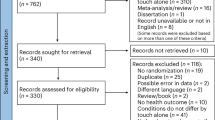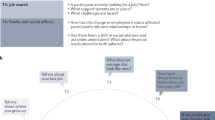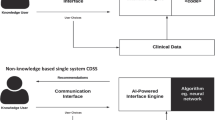Abstract
Objective
To qualitatively explore perceptions of pain/suffering, disability, and coping by race among pregnant women facing the threat of a periviable delivery (22 0/7–24 6/7 weeks).
Study design
Interviews were conducted in-hospital prior to delivery. Transcripts were coded verbatim and responses were stratified by race (white vs non-white). Conventional content analysis was conducted using NVivo 12.
Results
We recruited 30 women (50% white, 50% non-white). Most women expressed love and acceptance of their babies and described pain as a “means to an end.” Non-white women focused almost exclusively on immediate survival and perseverance, while white women expressed concerns about quality of life beyond the NICU. The majority of non-white women were unable to recall any discussions with their doctors about their baby’s comfort, pain, or suffering.
Conclusions
These findings may suggest that culturally tailored approaches to counseling and decision-support may be beneficial for patients from marginalized or minoritized groups.
This is a preview of subscription content, access via your institution
Access options
Subscribe to this journal
Receive 12 print issues and online access
$259.00 per year
only $21.58 per issue
Buy this article
- Purchase on Springer Link
- Instant access to full article PDF
Prices may be subject to local taxes which are calculated during checkout

Similar content being viewed by others
References
Tucker Edmonds B, Fager C, Srinivas S, Lorch S. Racial and ethnic differences in use of intubation for periviable neonates. Pediatrics. 2011;127:e1120–7.
Arzuaga B, Adam H, Ahmad M, Padela A. Attitudes towards the resuscitation of periviable infants: a national survey of American Muslim physicians. Acta Paediatr. 2016;105:260–7.
Arzuaga BH, Meadow W. National variability in neonatal resuscitation practices at the limit of viability. Am J Perinatol. 2014;31:521–8.
Kunkel MD, Downs SM, Tucker Edmonds B. Influence of maternal factors in neonatologists’ counseling for periviable pregnancies. Am J Perinatol. 2017;34:787–94.
Tucker Edmonds B, Krasny S, Srinivas S, Shea J. Obstetric decision-making and counseling at the limits of viability. Am J Obstet Gynecol. 2012;206:248.e1–5.
Tucker Edmonds B, McKenzie F, Fadel WF, Matthias MS, Salyers MP, Barnato AE, et al. Using simulation to assess the influence of race and insurer on shared decision making in periviable counseling. Simul Healthc. 2014;9:353–9.
Mebane EW, Oman RF, Kroonen LT, Goldstein MK. The influence of physician race, age, and gender on physician attitudes toward advance care directives and preferences for end-of-life decision-making. J Am Geriatr Soc. 1999;47:579–91.
Cohen LL. Racial/ethnic disparities in hospice care: a systematic review. J Palliat Med. 2008;11:763–8.
Smith AK, McCarthy EP, Paulk E, Balboni TA, Maciejewski PK, Block SD, et al. Racial and ethnic differences in advance care planning among patients with cancer: impact of terminal illness acknowledgment, religiousness, and treatment preferences. J Clin Oncol. 2008;26:4131–7.
Carrion IV. When do Latinos use hospice services? Studying the utilization of hospice services by Hispanics/Latinos. Soc Work Health Care. 2010;49:197–210.
Colon M. Hospice and Latinos: a review of the literature. J Soc Work End Life Palliat Care. 2005;1:27–43.
Born W, Greiner KA, Sylvia E, Butler J, Ahluwalia JS. Knowledge, attitudes, and beliefs about end-of-life care among inner-city African Americans and Latinos. J Palliat Med. 2004;7:247–56.
Johnson KS, Kuchibhatla M, Tanis D, Tulsky JA. Racial differences in hospice revocation to pursue aggressive care. Arch Intern Med. 2008;168:218–24.
Johnson KS, Kuchibhatla M, Tulsky JA, Johnson KS, Kuchibhatla M, Tulsky JA. What explains racial differences in the use of advance directives and attitudes toward hospice care? J Am Geriatrics Soc. 2008;56:1953–8.
Nath SB, Hirschman KB, Lewis B, Strumpf NE. A place called LIFE: exploring the advance care planning of African-American PACE enrollees. Soc Work Health Care. 2008;47:277–92.
Smith AK, Earle CC, McCarthy EP. Racial and ethnic differences in end-of-life care in fee-for-service Medicare beneficiaries with advanced cancer. J Am Geriatr Soc. 2009;57:153–8.
Reese DJ, Ahern RE, Nair S, O’Farie JD, Warren C. Hospice access and use by African Americans: addressing cultural and institutional. Soc Work. 1999;44:549.
Givens JL, Tjia J, Zhou C, Emanuel E, Ash AS. Racial and ethnic differences in hospice use among patients with heart failure. Arch Intern Med. 2010;170:427–32.
Knapp CA, Shenkman EA, Marcu MI, Madden VL, Terza JV. Pediatric palliative care: describing hospice users and identifying factors that affect hospice expenditures. J Palliat Med. 2009;12:223–9.
Moseley KL, Church A, Hempel B, Yuan H, Goold SD, Freed GL. End-of-life choices for African-American and white infants in a neonatal intensive-care unit: a pilot study. J Natl Med Assoc. 2004;96:933–7.
Volandes AE, Paasche-Orlow M, Gillick MR, Cook EF, Shaykevich S, Abbo ED, et al. Health literacy not race predicts end-of-life care preferences. J Palliat Med. 2008;11:754–62.
Bullock K. Promoting advance directives among African Americans: a faith-based model. J Palliat Med. 2006;9:183–95.
Blackhall LJ, Frank G, Murphy ST, Michel V, Palmer JM, Azen SP. Ethnicity and attitudes towards life sustaining technology. Soc Sci Med. 1999;48:1779–89.
Tucker Edmonds B, Hoffman SM, Laitano T, Bhamidipalli SS, Jeffries E, et al. Paediatr Perinat Epidemiol. 2019. https://doi.org/10.1111/ppe.12590. [Epub ahead of print].
Tucker Edmonds B, Laitano T, Hoffman SM, Jeffries E, Fadel W, Bhamidipalli SS, et al. The impact of decision quality on mental health following periviable delivery. J Perinatol. 2019;39:1595–601.
Guest G, Bunce A, Johnson L. How many interviews are enough?: An experiment with data saturation and variability. Field Methods. 2006;18:59–82.
Hsieh HF, Shannon SE. Three approaches to qualitative content analysis. Qual Health Res. 2005;15:1277–88.
Ayres L, Kavanaugh K, Knafl KA. Within-case and across-case approaches to qualitative data analysis. Qual Health Res. 2003;13:871–83.
Rysavy MA, Li L, Bell EF, Das A, Hintz SR, Stoll BJ, et al. Between-hospital variation in treatment and outcomes in extremely preterm infants. N Engl J Med. 2015;372:1801–11.
Tucker Edmonds B, McKenzie F, Farrow V, Raglan G, Schulkin J. A national survey of obstetricians’ attitudes toward and practice of periviable intervention. J Perinatol. 2015;35:338–43.
Tucker Edmonds B, McKenzie F, Robinson BK. Maternal-Fetal Medicine physicians’ practice patterns for 22-week delivery management. J Matern Fetal Neonatal. 2016;29:1829–33.
Cummings J. Antenatal counseling regarding resuscitation and intensive care before 25 weeks of gestation. Pediatrics.2015;136:588–95.
McKenzie F, Robinson BK, Tucker Edmonds B. Do maternal characteristics influence maternal-fetal medicine physicians’ willingness to intervene when managing periviable deliveries? J Perinatol. 2016;36:522–8.
Lemyre B, Moore G. Counselling and management for anticipated extremely preterm birth. Paediatr Child Health. 2017;22:334–41.
Kaempf JW, Tomlinson MW, Campbell B, Ferguson L, Stewart VT. Counseling pregnant women who may deliver extremely premature infants: medical care guidelines, family choices, and neonatal outcomes. Pediatrics. 2009;123:1509–15.
Smith AK, Davis RB, Krakauer EL. Differences in the quality of the patient-physician relationship among terminally ill African-American and white patients: impact on advance care planning and treatment preferences. J Gen Intern Med. 2007;22:1579–82.
Ache KA, Shannon RP, Heckman MG, Diehl NN, Willis FB. A preliminary study comparing attitudes toward hospice referral between African American and White American primary care physicians. J Palliat Med. 2011;14:542–7.
Barnato AE, Angus DC. Value and role of intensive care unit outcome prediction models in end-of-life decision making. Crit Care Clin. 2004;20:345–62.
Cook D, Rocker G, Marshall J, Sjokvist P, Dodek P, Griffith L, et al. Withdrawal of mechanical ventilation in anticipation of death in the intensive care unit. N Engl J Med. 2003;349:1123–32.
Frost DW, Cook DJ, Heyland DK, Fowler RA. Patient and healthcare professional factors influencing end-of-life decision-making during critical illness: a systematic review. Crit Care Med. 2011;39:1174–89.
Seale C. The role of doctors’ religious faith and ethnicity in taking ethically controversial decisions during end-of-life care. J Med Ethics. 2010;36:677–82.
Institute of Medicine (US) Committee on Understanding and Eliminating Racial and Ethnic Disparities in Health Care. In: Smedley BD, Stith AY, Nelson AR, editors. Unequal treatment: confronting racial and ethnic disparities in health care. Washington, DC: National Academies Press (US) Copyright 2002 by the National Academy of Sciences; 2003.
Bullock K. The influence of culture on end-of-life decision making. J Soc Work End Life Palliat Care. 2011;7:83–98.
Hopp FP, Duffy SA. Racial variations in end-of-life care. J Am Geriatr Soc. 2000;48:658–63.
Tucker Edmonds B. Moving beyond the impasse: discussing death and dying with African American patients. Obstet Gynecol. 2011;117:383–7.
Gamble VN. Under the shadow of Tuskegee: African Americans and health care. Am J Public Health. 1997;87:1773–8.
Johnson KS, Elbert-Avila KI, Tulsky JA. The influence of spiritual beliefs and practices on the treatment preferences of African Americans: a review of the literature. J Am Geriatr Soc. 2005;53:711–9.
Holloway KFC. Passed on: African American mourning stories: a memorial Durham, NC: Duke University Press; 2003.
Funding
This study was funded by the National Institutes of Health R21 Exploratory/Developmental Research Grant (HD089032-01).
Author information
Authors and Affiliations
Contributions
BTE and KK contributed to study concept, design, analysis, and writing. KK served as a mentor to BTE. SMH, TL, and EJ contributed to recruitment, data management, analysis, and writing. SJ contributed to analysis and writing.
Corresponding author
Ethics declarations
Conflict of interest
The authors declare that they have no conflict of interest.
Additional information
Publisher’s note Springer Nature remains neutral with regard to jurisdictional claims in published maps and institutional affiliations.
Rights and permissions
About this article
Cite this article
Tucker Edmonds, B., Hoffman, S.M., Laitano, T. et al. Diverse perspectives on death, disability, and quality of life: an exploratory study of racial differences in periviable decision-making. J Perinatol 41, 396–403 (2021). https://doi.org/10.1038/s41372-020-0739-5
Received:
Revised:
Accepted:
Published:
Issue Date:
DOI: https://doi.org/10.1038/s41372-020-0739-5
This article is cited by
-
Disparities in perinatal health: what can we do?
Journal of Perinatology (2021)



